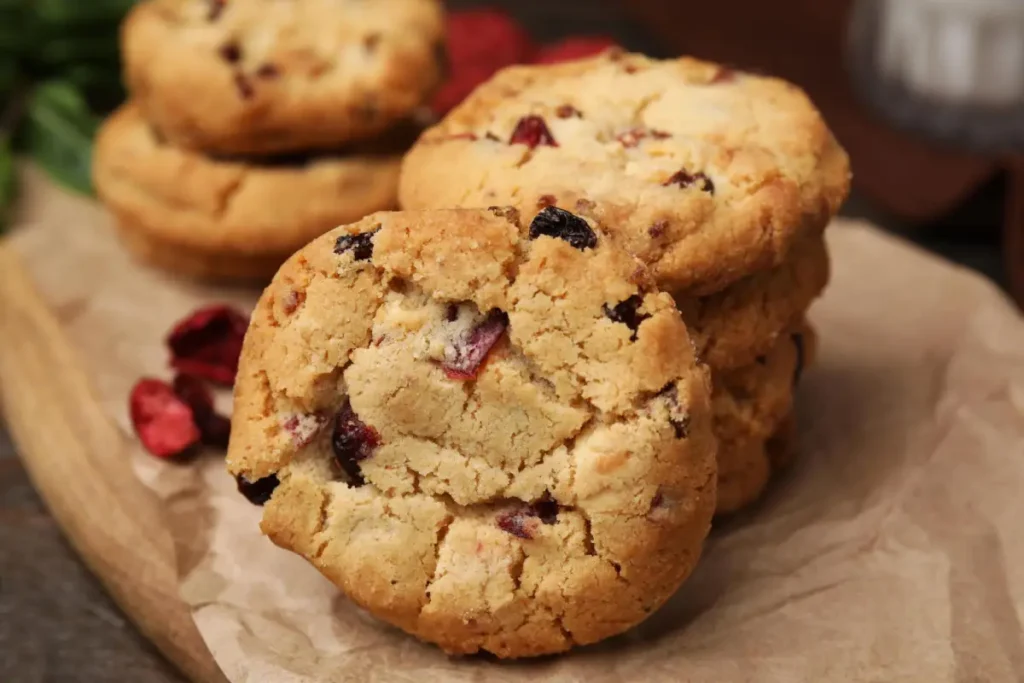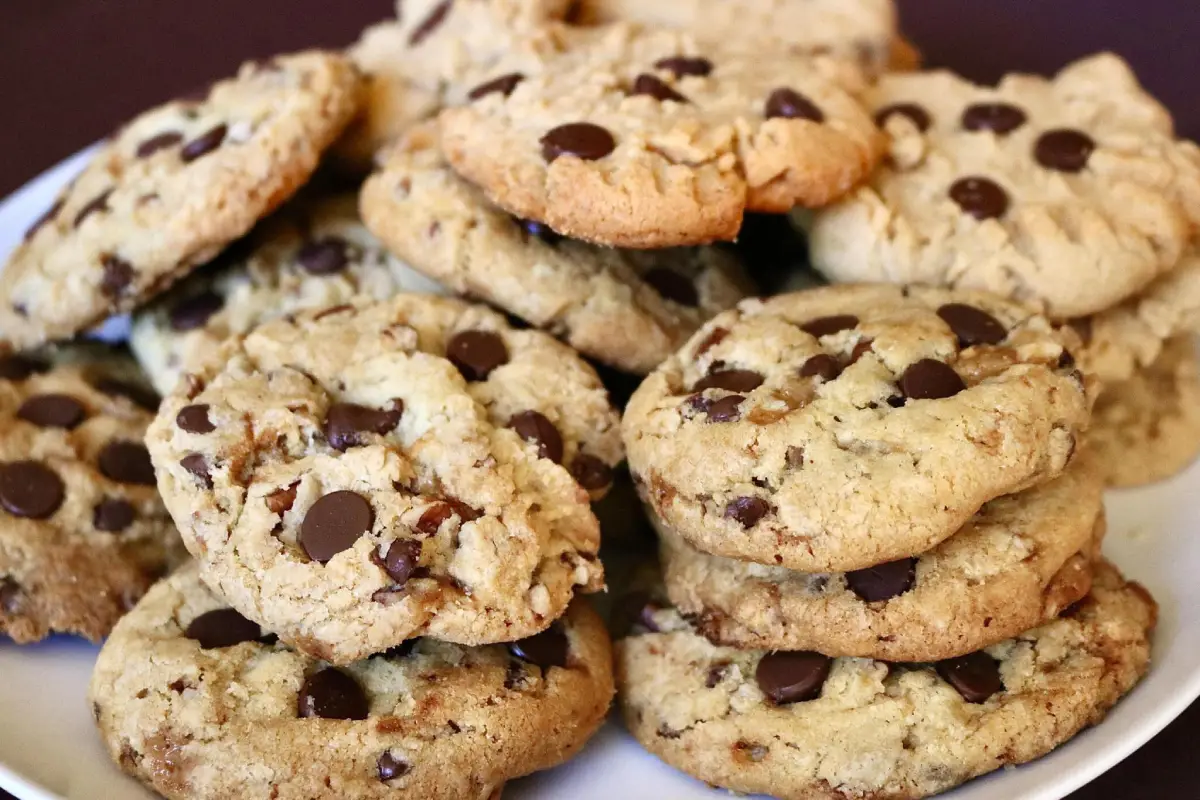Ever find yourself peering into the oven, watching as your batch of cake mix cookies spreads into a flat, uniform sheet rather than puffing up into the thick, chewy treats you anticipated? You’re not alone. This culinary conundrum has baffled many a baker, leaving them pondering, why are my cake mix cookies flat? Fear not, for we’re about to embark on a baking detective journey to unravel this mystery. Through understanding the science behind the ingredients, tweaking techniques, and introducing a dash of patience, we’ll discover how to elevate those flat cookies into the envy of every bake sale. So, grab your spatula, preheat your oven, and let’s dive into the floury world of cake mix cookies.
Understanding Cake Mix Cookies
The Basics of Cake Mix Cookies
Cake mix cookies, a marvel of modern baking, promise a shortcut to homemade cookie bliss with minimal effort. But when expectations crumble like a too-thin cookie, it’s essential to get back to the basics.
What Makes Cake Mix Cookies Different?
At their core, cake mix cookies are a delightful blend of simplicity and creativity. Using a box of cake mix reduces the need for measuring out flour, sugar, and leavening agents, streamlining the baking process. This convenience, however, comes with its quirks—mainly, the tendency for cookies to spread too thin if not managed correctly.
The Appeal of Cake Mix Cookies
The charm of cake mix cookies lies in their versatility. From the classic chocolate chip to avant-garde flavor combinations, these cookies offer a canvas for bakers to experiment with tastes and textures. Yet, the very simplicity that makes them appealing can also lead to their downfall: the dreaded flat cookie syndrome.
Understanding why cake mix cookies go flat involves a bit of baking science and a touch of art. By delving into the common causes of this issue in the following sections, we’ll learn how to tweak our approach, ensuring our cookies are just as plump and inviting as we dream them to be. Stay tuned, as the journey from flat to fabulous is about to begin.
Common Causes of Flatness
The road to perfect cake mix cookies is paved with good intentions and, sometimes, flat results. Let’s explore the common culprits behind why your cookies might resemble pancake cousins rather than their plump, inviting selves.
Ingredient Temperatures
Ah, the subtle art of temperature! Ingredients at the wrong temperature can sabotage your cookies before they even hit the oven. Butter that’s too warm can cause your dough to spread too much, leading to flat cookies. On the flip side, eggs straight from the fridge might not emulsify well, affecting the dough’s consistency. Tip: Aim for room temperature to get the balance just right.
Overmixing the Dough
In the quest for a well-combined dough, there’s a fine line between just right and overmixed. Overmixing develops the gluten in the flour, making your cookies tough and prone to spreading. Remember: Mix until just combined to keep your cookies tender and well-behaved.
Incorrect Measuring
Precision is your friend in the baking world. An extra spoonful of sugar or a scant cup of flour can alter the dough’s consistency, leading to cookies that spread into oblivion. Pro tip: Use a kitchen scale or the scoop and level method for accuracy.
Oven Temperature Inaccuracies
Your oven might be telling tales. Inaccurate oven temperatures can affect baking times and outcomes. If it’s too hot, cookies will spread quickly and set before they’ve had time to rise. Too cool, and they won’t set properly, spreading out lazily. Solution: An oven thermometer can reveal the truth, ensuring your baking environment is just right.
Understanding these common causes is like holding a cookie compass—it points you in the right direction. As we proceed, we’ll discover preventative measures and tweaks to guide us toward cookie perfection, leaving flat, uninspiring cookies in our flour-dusted wake.
Preventative Measures

Armed with knowledge about the culprits behind flat cake mix cookies, we’re now ready to whisk in some preventative measures. These tips are your ingredients for success, ensuring your cookies rise to the occasion, both literally and figuratively.
Importance of Chilling the Dough
Chilling your dough can be a game-changer. It solidifies the fat in the cookies, slowing down the spread during baking and giving your cookies a fighting chance to puff up before setting. Remember: A little patience goes a long way—chill the dough for at least an hour, or even overnight, for best results.
The Role of Leavening Agents
Sometimes, the leavening agent in the cake mix isn’t enough to give cookies their lift. Adding a pinch of baking powder can provide that extra boost, encouraging your cookies to rise rather than sprawl. Pro tip: About a quarter teaspoon per cup of flour in the mix should do the trick.
Choosing the Right Fat: Butter vs. Oil
The type of fat you use impacts texture and spread. Butter, with its water content, can create steam and help cookies puff up. Oil, on the other hand, leads to denser, chewier cookies that may spread more. Consider: Using half butter and half oil for a balance of flavor and texture.
Baking Sheets and Parchment Paper: Do They Make a Difference?
Absolutely! Dark-colored baking sheets can absorb more heat, increasing the chances of spreading. Light-colored or insulated baking sheets are more forgiving. And parchment paper? It’s not just for easy cleanup. It provides a non-stick surface without extra grease, helping prevent cookies from spreading too thin.
By implementing these preventative measures, you’re well on your way to baking cake mix cookies that are the envy of the bake sale. Keep these tips in your apron pocket as we move on to making specific recipe adjustments and solutions that ensure every batch comes out just right.
Recipe Adjustments and Solutions

Sometimes, even with all the right preventative measures in place, your cake mix cookies might still come out a bit too friendly with the baking sheet. Fear not! Tweaking your recipe can turn those flat cookies into the fluffy, mouthwatering treats you’ve been dreaming of. Let’s dive into some adjustments and solutions that can help.
Adjusting Leavening Agents
If your cookies are consistently flat, it might be time to reevaluate the leavening agent. As mentioned, adding a bit of baking powder can give your cookies the lift they need. However, it’s also worth checking the freshness of your cake mix; expired leavening agents could be the culprit. Quick fix: Test the effectiveness of your baking soda or powder by dropping a pinch into vinegar. If it fizzles, it’s ready to make your cookies rise.
Experimenting with Flour Types
All-purpose flour is the go-to for most baking, but if flatness persists, consider the flour’s protein content. A higher protein content (found in bread flour) can offer more structure, while lower protein (cake flour) can make for a tender crumb. Experiment: Try substituting a portion of the all-purpose flour in your recipe with bread flour for cookies that hold their shape better.
Alternative Mixing Techniques
The way you combine your ingredients can also impact the outcome. For instance, creaming butter and sugar together before adding other ingredients can incorporate air, aiding in leavening. With oil-based recipes, whisking the oil and eggs until emulsified can achieve a similar effect. Technique tip: Don’t just mix—whisk or beat as directed to ensure the right texture and volume.
Implementing these adjustments requires a bit of trial and error, but finding the perfect balance for your cake mix cookies is part of the fun. With each batch, you’re not only creating delicious treats but also honing your skills as a baker. In our final section, we’ll wrap up with some FAQs to address any lingering questions and send you on your way to cookie success.
FAQs
As we near the end of our quest to perfect the cake mix cookie, let’s tackle some frequently asked questions. These are the queries that bubble up in the minds of bakers everywhere, from the novices staring doubtfully at their mixing bowls to the seasoned pros seeking to refine their techniques.
Can I Make Cake Mix Cookies Without Eggs?
Absolutely! For those avoiding eggs or baking on the fly without them, there are alternatives. Applesauce, mashed bananas, or commercial egg replacers can step in to bind your ingredients together. Pro tip: Use a quarter cup of applesauce or mashed banana as a substitute for each egg.
Why Do My Cookies Spread Too Much?
Excessive spreading can be the result of several factors discussed earlier, such as ingredient temperature, overmixing, and incorrect measurements. If you’ve ticked all the boxes for prevention and still find your cookies playing it fast and loose on the baking sheet, revisit the chilling step—sometimes, a longer chill is all it takes.
How Can I Make My Cake Mix Cookies More Flavorful?
If you’re looking to jazz up the flavor profile of your cookies, the world is your oyster. Mix-ins like chocolate chips, nuts, and dried fruits can add texture and taste. Extracts and spices also offer a simple way to elevate the basic cake mix to a cookie with complexity and depth. Remember: With flavor, a little goes a long way.
With these FAQs addressed, you’re armed with the knowledge and strategies to tackle the challenge of flat cake mix cookies head-on. Remember, baking is as much about the journey as it is about the destination. Each batch is an opportunity to learn, adapt, and, most importantly, enjoy the delicious results of your labor. Happy baking, and may your cookies always rise to the occasion!
Elevating Your Cake Mix Cookies
After whisking through the doughy depths of why cake mix cookies sometimes fall flat and armed with the knowledge to combat it, you’re now well-equipped to embark on your next baking adventure with confidence. Remember, the journey to perfect cookies is sprinkled with trials, errors, and, most importantly, delightful successes.
Each tip and trick shared here isn’t just about avoiding flat cookies; it’s about embracing the joy of baking and the satisfaction of sharing your creations with friends and family. From chilling your dough to experimenting with different flours and leavening adjustments, every step is a chapter in your baking story.
So, preheat your oven, line those baking sheets, and prepare for the sweet smell of victory as your cookies puff up beautifully. Remember, the secret ingredient is always a dash of patience and a sprinkle of love. Here’s to cookies that rise both in the oven and to the occasion, making every bite a testament to your dedication and baking prowess. Happy baking!

